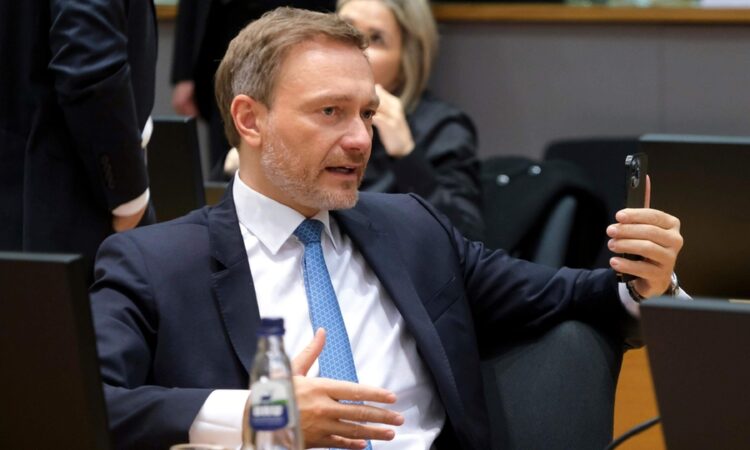
German Finance Minister Christian Lindner said he has come to a meeting of European Union counterparts in Brussels willing to find an agreement on new fiscal rules for the bloc.
“Germany and France have moved closer to each other,” Lindner told reporters ahead of a meeting with euro-area peers in Brussels on Thursday, adding that the two countries have resolved 90% of the main issues.
Still, “the 10% where we haven’t yet agreed could be very decisive,” with the treatment of excessive deficits the key sticking point, he said.
Lindner and his fellow EU finance ministers are in the final stages of negotiating a reform of the bloc’s framework limiting debt and deficits, which is set to kick in again in January after years of suspension to cope with the pandemic and the fallout from Russia’s invasion of Ukraine.
The German finance chief has been preoccupied with this country’s budget turmoil in recent weeks following a shock ruling by the highest court last month that is forcing the three-party coalition to overhaul its finances. Talks on a new budget are still unresolved and are set to resume on Friday.
Lindner said a political agreement about the structure of next year’s budget is likely to be made in a couple of days.
The Spanish presidency of the EU – which expects a long night of talks – has put forward a concrete proposal for a discussion in Brussels on Thursday evening and Friday, which accommodates Germany on many crucial points.
French Finance Minister Bruno Le Maire said earlier on Thursday that the bloc’s top two economies are still divided on a key plank of new European debt rules that would determine how much countries with large budget gaps can invest and – like Lindner – said that a deal is only 90% there.
European Commission Vice President Valdis Dombrovskis sounded more optimistic.
“We know there are still differences among member states on the fiscal rules,” he told reporters. “But if all countries approach this process constructively I think those differences are bridgeable. So I think it’s feasible actually to finalise those discussions today and tomorrow.”
The rules being discussed provide “more flexibility for member states to determine their fiscal-adjustment paths and also are less stringent while at the same time ensuring indeed, especially in high-debt countries, that debts are put on a clear downward trajectory,” he said.
His EU executive colleague Paolo Gentiloni – who put the odds of coming to an agreement at 51% – highlighted that budget rules require “stability and safeguards” while at the same time providing “room for investment and growth.”
“We don’t need rules that lead to austerity,” he told reporters.
If EU finance ministers fail to reach a deal this week, the discussion could be kicked up to leaders – meeting in Brussels on December 14-15 – to try to unblock talks, but in the end the legal approval is done by the economic and financial affairs council. The proposal needs the European Parliament approval too.
While the year-end deadline is self-imposed, a failure to meet it might undermine the EU’s credibility. The old fiscal rules will come back into force on January 1, but capitals want to leave enough time to put in place a legislative reform ahead of EU parliament elections in June.
(Additional reporting by Jorge Valero, William Horobin, Maria Tadeo and Iain Rogers)
©2023 Bloomberg L.P.






